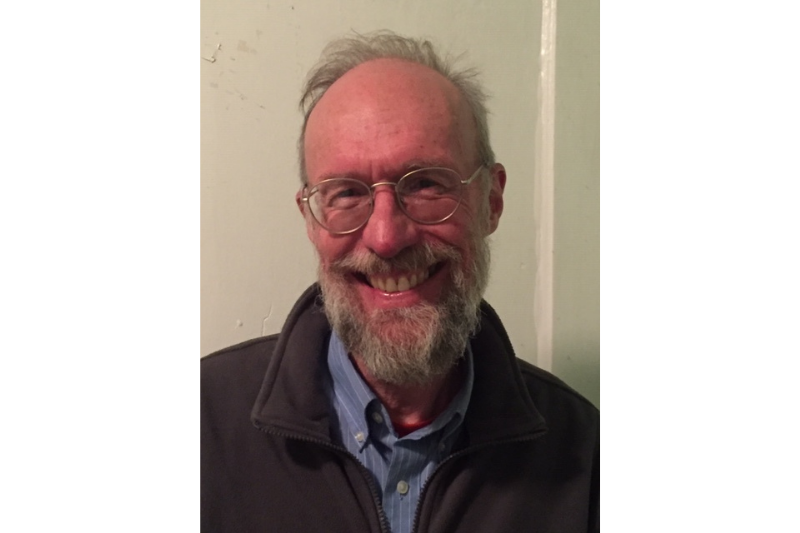2021 Advent Devotional 4
December 15, 2021
Zephaniah 3:14-20
“Prepare a Way in the Wilderness”
By David Wildman
“At that time I will deal with all who oppressed you; I will rescue the lame and gather those who have been scattered. I will give them praise and honor in every land where they were put to shame. At that time I will gather you; at that time I will bring you home.” Zephaniah 3:19-20a
Ten years ago, I was in Jalalabad, Afghanistan. I had visited several schools and health clinics in nearby rural villages to learn more about their needs—especially for girls’ education and mother-child healthcare. The rural schools had half day sessions to accommodate all the students: girls in the morning and boys in the afternoon.
We met with the local shura (community leaders and elders, all men) who had brought a handwritten list of concerns to the local government office. They were concerned about the safety of children having to walk long distances to get to and from school. Their villages had no electricity, and one school built by a river repeatedly flooded during the spring snow melt.
We also visited several health clinics that had separate days for women and men patients. Children could get appointments every day. A large number of women sat patiently in the clinic courtyard waiting to be seen. Thanks to educational outreach and word of mouth, more women were coming to the clinic for basic health needs and for pre-natal and neo-natal care with midwives.
Advent, the season when we prepare for and await the birth of the prince of peace, is also a season to remember and celebrate the role of midwives. Both our children were born the week after Christmas, so each Advent Karen and I remember our weekly visits to the midwife as we prepared to make room in our lives for a newborn child. We shared every parent’s fears and hopes for a healthy baby, but we never had to worry about any dangers of getting to the midwife.
During the 20 years of US military operations in Afghanistan, the US poured $2 trillion into waging war. The US spent billions training, equipping, and paying hundreds of thousands of Afghan men to fight against other Afghans. Yet the US could only find a small amount of funding to train a few thousand Afghan women as midwives.
This year as we reflect on 20 years of US war-making in Afghanistan, and the many other US military actions around the world, I am reminded that Advent also marks a season that exposes the horrors of militarism. In biblical times and today, empires use military might to prepare a way for themselves in the wilderness: they build military outposts and roads to transport troops and weapons quickly for their own security. The trillions that the US devotes to war-making year after year serve to enrich military contractors, powerful companies, and political leaders at the expense of impoverished communities in Afghanistan and at home.
For the US empire today, like the Romans, wilderness areas are dangerous places to be controlled by military force or perhaps threatened with pre-emptive drone strikes from afar. Over 70% of Afghans live in remote rural villages—in the wilderness—the very communities most hit by drone strikes and night raids. Several million Afghans have fled as refugees or internally displaced and live in highly vulnerable places.
The Advent story urges us to take a different route: to prepare the way in the wilderness for Emmanuel, God with us as a vulnerable babe.
On my way back to Kabul, I was taking a UN flight that flew out of the US military base at the airport. While UN staff and some aid workers had a pass to drive through the base, I had to enter on foot with all the Afghan contract workers on the base. None of the US soldiers I met knew anything about a UN flight, yet when I opened my mouth, my American English opened doors and bypassed security checks. Most of the soldiers had only been there 1-2 weeks and had not left the base. They seemed confused and relieved to hear me speak. It took over a mile walking through a military base to finally find where my flight departed. It was the Afghan workers who shepherded me through the security lines and pointed me in the right direction, like a guiding star.
This past August tens of thousands of Afghans desperately crowded the gates at Kabul airport in hopes of leaving the country. Over the past months, 4-5,000 Afghans a day crossed the border into Iran and others fled to Pakistan. While some fear persecution or reprisals, most are fleeing drought, hunger, and economic collapse.
Today Afghanistan faces the worst drought in over 27 years and it's likely to continue in years to come. Half the crops failed, and 23 million people now face severe food shortages, hunger, and a collapsing economy. The UN has issued an urgent humanitarian appeal for $4.47 billion in aid for the people of Afghanistan, the largest crisis in the world. Yet that huge sum is barely half of one percent of what the US Congress is preparing to devote to war-making in 2022 ($777 billion)! The US and other foreign donors, which had comprised 75% of Afghan government spending, have frozen most of these funds. After years of funding corrupt politicians and warlords, the international community wants to wash its hands, but it is the Afghan people who continue to suffer the consequences.
Today, most health clinics and schools across Afghanistan remain open, but for how long? Their staff has not been paid in months and they are unsure if they can get needed medical supplies. How long will these dedicated Afghan workers be able to continue serving their communities if they cannot afford to feed their own families?
Today, many US veterans continue to struggle with traumatic stress and other health challenges. Since 2001 over 30,000 veterans have died by suicide, far more than those killed in combat. Among veterans ages 18-34, the suicide rate is three times higher than that of non-vets. The wounds of war do not end when the fighting stops.
Yet, US vets are among those working the hardest to welcome Afghans arriving in the US. Veterans groups are working closely with resettlement agencies, like Church World Service, to help sponsor and resettle more than 75,000 Afghans who have arrived so far.
Eight US military bases temporarily have been prepared as ‘safe havens’ for Afghan families. Why not permanently repurpose military bases from war making to safe havens?
Let us devote ourselves this Advent to preparing a way in the wilderness for peacemaking, for midwives, and for teachers in Afghanistan and at home. Let us prepare a way for schools and clinics and safe havens, not for military bases or detention centers. Let us prepare a way in our communities to welcome Afghan families. Let us demand that government end its warring madness and endless war spending. We have more than enough resources to fund the needs of people first over war profiteers if we will open our hearts and lives to the incarnating love of Emmanuel, God with us.
You make our collective work possible by your witness for justice every day in your church, community, and Annual Conference. MFSA does not receive any financial support from the United Methodist Church's giving channels. 100% of our budget is funded through your membership dues and your generosity in giving.
David Wildman serves as the liaison to the United Nations, the Middle East & Afghanistan for Global Ministries of the United Methodist Church. He has traveled regularly to Afghanistan since 2004. He has served with United Methodist general agencies since 1989 and his office is at the Church Center for the UN in New York City.

